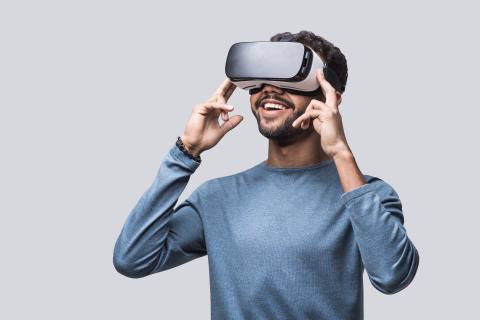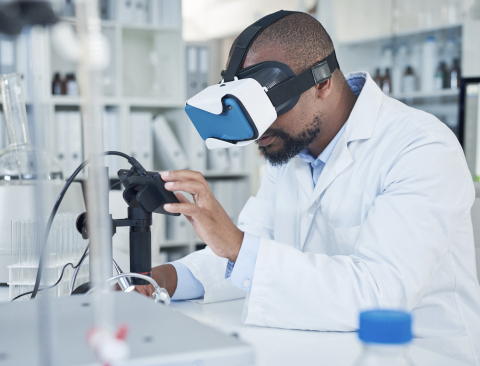Virtual Reality: Transforming Lives Across Diverse Populations and Industries
December 27, 2023In the ever-expanding realm of technological advancement, Virtual Reality (VR) has transcended its initial association with gaming and emerged as a transformative force with the potential to revolutionize various sectors and impact diverse populations. Beyond being a mere futuristic concept, VR has swiftly evolved into a powerful tool, demonstrating the ability to bring about significant positive changes in different aspects of life.
This immersive technology is positioned to reshape how we interact with information, experience events, and navigate our realities, providing unprecedented opportunities for enhancement and enrichment across various demographics. Whether in healthcare, education, business, construction management, or beyond, the versatility of virtual reality is reshaping lives and societal landscapes in once inconceivable ways. Here's a glimpse into how VR can empower five distinct groups:
How Virtual Reality can Empower Senior Citizens
- Combating Social Isolation: VR can create immersive social experiences, allowing seniors to connect with family and friends in distant locations or participate in virtual communities with shared interests.
- Cognitive Enhancement: VR games and activities can stimulate cognitive function, improving memory, focus, and problem-solving skills.
- Physical Therapy and Rehabilitation: VR-based exercises can provide engaging and interactive rehabilitation for seniors with limited mobility or recovering from injuries.
How Virtual Reality can Assist Students
- Interactive Learning: VR can bring textbooks and lessons to life, immersing students in historical events, exploring the human body in 3D, or conducting virtual experiments in science labs.
- Developing Soft Skills: VR simulations can provide safe and controlled environments for students to practice public speaking, teamwork, and leadership skills.
- Accessibility and Inclusivity: VR can break down physical barriers, allowing students with disabilities to participate in learning experiences that might otherwise be inaccessible.
How Virtual Reality can Help the Medical Field
- Surgical Training: VR simulations can provide surgeons with realistic and diverse training scenarios, improving surgical skills and patient outcomes.
- Pain Management: VR experiences can distract patients from chronic pain, offering a non-invasive and potentially addictive-free pain management tool.
- Mental Health Therapy: VR exposure therapy can help patients with phobias, PTSD, and other mental health conditions confront their fears in a controlled virtual environment.
How Virtual Reality can Assist Those with Disabilities
-
Accessibility and Independence: VR can provide virtual mobility aids, allowing people with physical disabilities to explore new environments and navigate obstacles.
- Sensory Experiences: VR can simulate real-world experiences for people with limited vision or hearing, enriching their lives and reducing isolation.
- Social Connection and Communication: VR platforms can create safe and inclusive spaces for people with disabilities to connect and interact with others who share similar experiences.
Virtual Reality's Impact on Various Professions
- Architecture and Design: VR can allow architects and designers to walk through virtual models of buildings before they're even built, improving collaboration and decision-making.
- Product Design and Testing: VR prototypes can provide valuable user feedback during product development, leading to more user-friendly and marketable products.
- Training and Simulations: VR simulations can train employees in various fields, from pilots and firefighters to factory workers and customer service representatives.
Prepare for Your VR Career at Capitol Tech
These are just a few examples of VR technology's diverse and widespread possibilities. As VR technology evolves and becomes more accessible, we can expect to see even more innovative applications that benefit individuals and communities across various sectors.
It's important to remember that VR is still in its early stages of development, and you can become one of the driving forces by enrolling in our specialized research programs in the technological fields. Many courses are available both on campus and online. To learn more about Capitol Tech's degree programs, contact admissions@captechu.edu .





